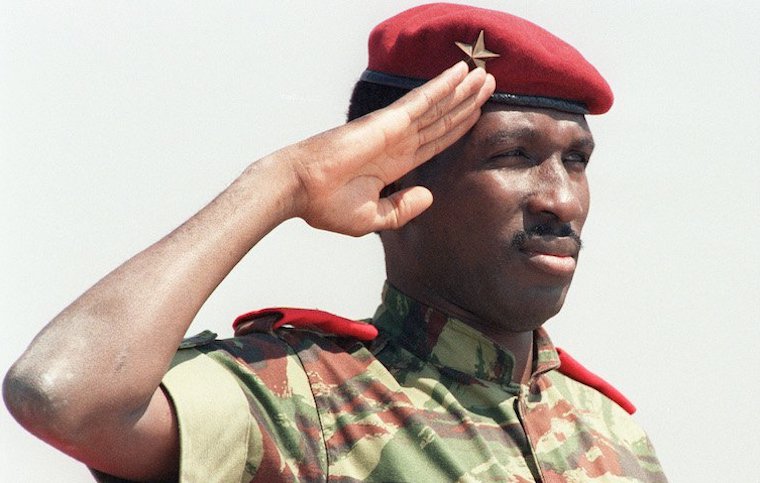PARIS (HAN) APRIL 13. 2021. Public Diplomacy and Regional Stability Initiatives News. Monitoring Regional Issues. In Burkina Faso, judges have ruled that exiled former president Blaise Compaoré must stand trial for his role in the assassination of Thomas Sankara, whom he overthrew in a coup d’état in 1987. Also, a Tuareg leader in Mali has been shot dead in the capital Bamako. Sidi Brahim Ould Sidati was a key figure in a 2015 peace accord. And in a major step forward for the protection of women and children in Gabon, customary marriages are finally recognised by the state.
Can former president Compaoré’s trial help to reconcile Burkina Faso?
Will justice finally be served to those responsible for the assassination of Burkina Faso’s former president Thomas Sankara and his allies?
34 years after the events, a military court in Burkina Faso’s capital has indicted 14 people. Among them are former president Blaise Compaoré and his former chief of staff, General Gilbert Diendéré, who will soon be tried for an “attack on state security”, “complicity in assassination” and “concealment of corpses”.
“The investigative control chamber decided that there were sufficient charges against Blaise Compaoré and 13 other people to be referred to a trial chamber,” Prosper Farama, one of the Sankara family’s lawyers, told the local press. “We would like a case schedule to be released as soon as possible. The families have waited long enough. Everyone must be able to express themselves so that we can move on.”
The Sankara case, which has dominated public debate for decades, is one of the dossiers that will be settled within the framework of the “national reconciliation” pushed by Burkina Faso’s President Roch Kaboré. Re-elected in the November 2020 elections, Kaboré has created a ministry dedicated to this cause, which is headed by Zéphirin Diabré, the former leader of the opposition.
Will Compaoré be present?
According to Ornella Moderan, a researcher and the head of the Institut d’Etudes de Sécurité’s (IES) Sahel programme, “the announced trial would never have taken place if Blaise Compaoré had not left the presidency. The judicial process was hampered by political considerations and power issues for at least the first 27 years. It was only from 2015 onwards that the subject was put back on the table and that there was progress in the investigation, even if this was also accompanied by challenges, notably around international judicial cooperation.”
This decision marks an important step forward for the families of the victims. “Admittedly, it has come 34 years after the fact. But today, everything is in place to ensure that justice is served in this case. Judges are increasingly independent, the President of Burkina Faso is no longer part of the Conseil Supérieur de la Magistrature and no one is above the law,” says Luc Damiba, secretary general of the Comité International Mémorial Thomas-Sankara.
However, one question remains. Will Compaoré be present at his trial? Even though the former president, who has been living in Côte d’Ivoire since his resignation in 2014, has been issued with an arrest warrant by the military court, he is now an Ivorian citizen and so cannot be extradited without the approval of the Ivorian authorities. “This new court decision dashes hopes of Blaise’s return,” said Damiba. “I don’t think he is brave enough to face his past.”
However, his political family, the Congrès pour la Démocratie et le Progrès (CDP), has made Compaoré’s return a central issue of “national reconciliation”. The announcement of the upcoming trial of its founder came as a surprise to the party, which has not made any statement since then. “We really didn’t expect it,” admits an official, speaking on condition of anonymity. “But we are republicans and expect justice to do its job and be fair.”
“We are still demanding his return. He has to return to his home country,” adds another. “This could be an opportunity to settle things once and for all. If certain conditions are ensured – his safety, the guarantee of a fair trial and being treated like a former head of state – he will come.”
New tensions
“In Burkina, everyone is calling for ‘national reconciliation’, but depending on who you talk to, the term does not mean the same thing,” says the IES’s Moderan. “For some, it means wiping the slate clean, forgiving everything, forgetting everything. This idea is supported by those who demand Blaise Compaoré’s unconditional return, notably his political family and his historic party, the CDP. For others, national reconciliation is the exact opposite. It means delivering justice so that we can move on.”
In an interview at the end of March, Clément Sawadogo, vice-president of the ruling Mouvement du Peuple pour le Progrès, described the discussions surrounding the return of Compaoré and that of the former transitional prime minister Yacouba Isaac Zida as a “false debate”. “Not because their return is not something important. But I don’t think we should base questions of reconciliation around the situation of a few figures,” said the man who is also coordinator of the Alliance des Partis et Formations Politiques de la Majorité Présidentielle.
Compaoré’s indictment should in any case change the situation on the current political scene. Since his exile to Côte d’Ivoire, the former president has retained his influence. According to Moderan, this court decision “risks straining once more the relations between his political family, whose president, Eddie Komboïgo, is now the leader of the opposition, and the current government.”

Leave a Reply